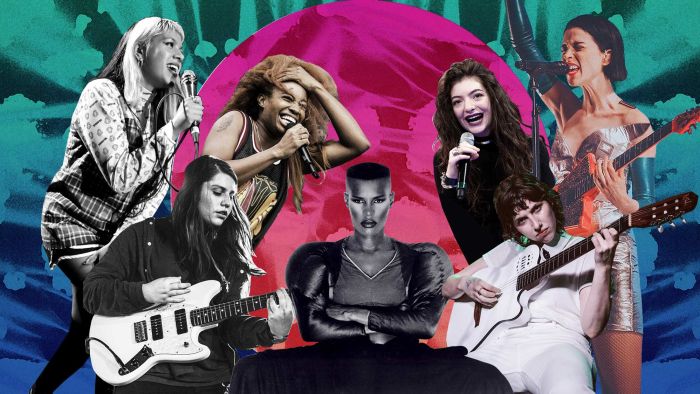UPDATE: Triple j has now updated its report, admitting to “an error in our statistics on festival line-ups” in its original publication.
ORIGINAL STORY: Triple j has published its third annual report on the state of gender equality in Australian music, to help update music fans on the state of the industry today, on International Women’s Day.
The latest ‘By The Numbers’ report from triple j‘s Hack program comes after research conducted by the University of Sydney found women are “chronically disadvantaged” in the Australian music industry, and much like last year’s report, this year’s investigation found that while gender diversity is improving in some areas, it’s waning in others.
So without further ado, here’s what we learned from triple j‘s latest ‘By The Numbers’ report, split up into sections…
Festival Lineups
Hack found that local festival lineups are still overwhelmingly male, with none of the country’s major touring festivals reaching gender equality — something which is now being highlighted by this new Instagram account.
The report did name Laneway Festival as Australia’s most gender-diverse festival, with female-identifying artists (or acts featuring both men and women) making up 44 per cent of its 2017 lineup.
However, Splendour In The Grass and Falls Festival both slumped in female representation on their latest lineups, down to 29 per cent and 25 per cent respectively.
Radio Play
Hack found solo female acts or all-female acts are still underrepresented on the radio, making up around 28 per cent of Australia’s most-played songs.
It also found that we’re seeing an increase in songs by male artists which feature a female vocalist, and that triple j‘s own Hottest 100 isn’t as gender diverse as the 100 most-played songs across Aussie radio.
Hottest 100 Appearances
Speaking of the Hottest 100 — the 2017 edition of the countdown was supposedly the most gender diverse in the countdown’s history, with 51 songs either by a female artist, an act with both men and women, or an artist that features a female vocalist.
Women also accounted for 51 per cent of the voters in the 2017 Hottest 100.
ABC Radio Feature Albums
The gender diversity of triple j‘s weekly feature albums increased to a three-year high in 2017, but Double J and triple j Unearthed‘s both decreased slightly.
Education
There were more female students than male students studying a music-related subject in their final year of high school last year, however women still make up only 29 per cent of people who list “music professional” as their occupation.
Decision-Makers
Unsurprisingly, there are still more men than women on the public boards of music organisations and record labels, and there are still no women on ARIA’s public board.
Grant-Winners
Women actually received 52 per cent of the Australia Council For The Arts’ music grants in 2017, making it the most gender-balanced year for the organisation in three years.
Earnings
The divide in the amount of money earned from royalties has slightly narrowed in the last 10 years. In 2008, women earned 10.5 per cent of total royalty payments made by royalty collection group APRA AMCOS. In 2017, it was at 16.6 per cent.
You can read triple j’s latest ‘By The Numbers’ report in full right here.












